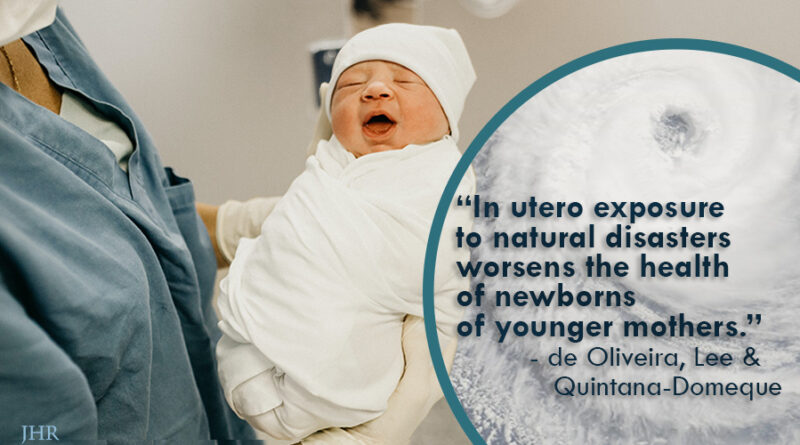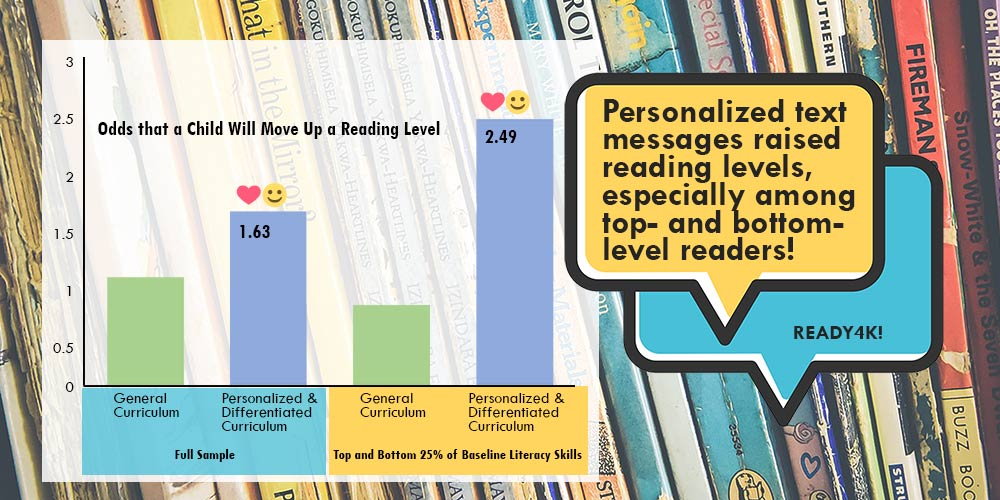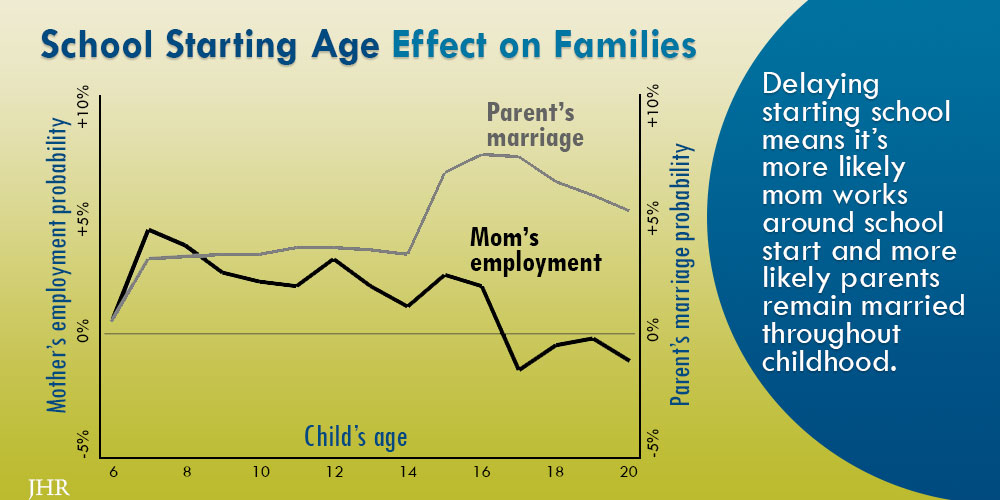Born after a Hurricane—How Do Disasters Affect Babies?
As natural disasters are becoming more common and severe due to climate change, pregnant women and their newborns may be particularly vulnerable. Disruptions to medical care and food supply can affect the population after the initial disaster, especially in less developed countries. Victor Hugo de Oliveira, Ines Lee, and Climent Quintana-Domeque study the impacts of the first hurricane to hit Brazil on births and child health.
On March 28, 2004, Hurricane Catarina hit the state of Santa Catarina in Southern Brazil with a wind speed of around 160 km per hour. This hurricane was unexpected, and its wind speed, economic costs, and infrastructure damages were like those from other hurricanes in the Americas. The researchers were able to use variation in geographical proximity of pregnant mothers to the hurricane and variation in timing of the birth to assess the impact of the hurricane.
Analyzing administrative data on birth and death outcomes for all babies born in Brazil in the years before, during, and after the hurricane, the team found that when young mothers (15–24 years old) experienced the hurricane while pregnant, it significantly worsened the health outcomes of their babies. Among this group, birth weight decreased by 82 grams, the probability of being born with a low birth weight (<2,500 grams) increased by 3.4 percentage points, and the fetal death rate increased by around 17 per 1,000 (1.7%). In contrast, babies born to older mothers (25–49 years old) were not affected by exposure to the hurricane.
Older mothers are more likely to be married, to have completed high school, and to working than the younger mothers. Given these differences, the researchers believe that the relatively weaker socioeconomic characteristics of younger women may make them more financially vulnerable to such shocks, so they may find it more difficult to deal with the stress of the disaster aftermath while pregnant.
What’s the takeaway? In utero exposure to natural disasters worsens the health of newborns of younger mothers, who may have fewer resources to deal with adverse shocks. Professor Quintana-Domeque: “Unfortunately, due to climate change, the frequency and severity of natural disasters is on the rise. Future work should focus on the socioeconomic and biological mechanisms that mediate the impact of these disasters on certain groups of women. If we can better understand such mechanisms, policymakers will be better equipped to mitigate the harmful effects of these shocks.”
Read the study in the Journal of Human Resources: “Natural Disasters and Early Human Development: Hurricane Catarina and Infant Health in Brazil” by Victor Hugo de Oliveira, Ines Lee, and Climent Quintana-Domeque.
***
Victor Hugo de Oliveira (@VHOliveiraS) is a public policy analyst at the Instituto de Pesquisa e Estratégia Econômica do Ceará. Ines Lee (@ines_138) is a junior research fellow in economics at the University of Cambridge. Climent Quintana-Domeque (@climentqd) is a professor of economics at the Department of Economics, Business School, University of Exeter, and research fellow at HCEO, GLO, and IZA.




